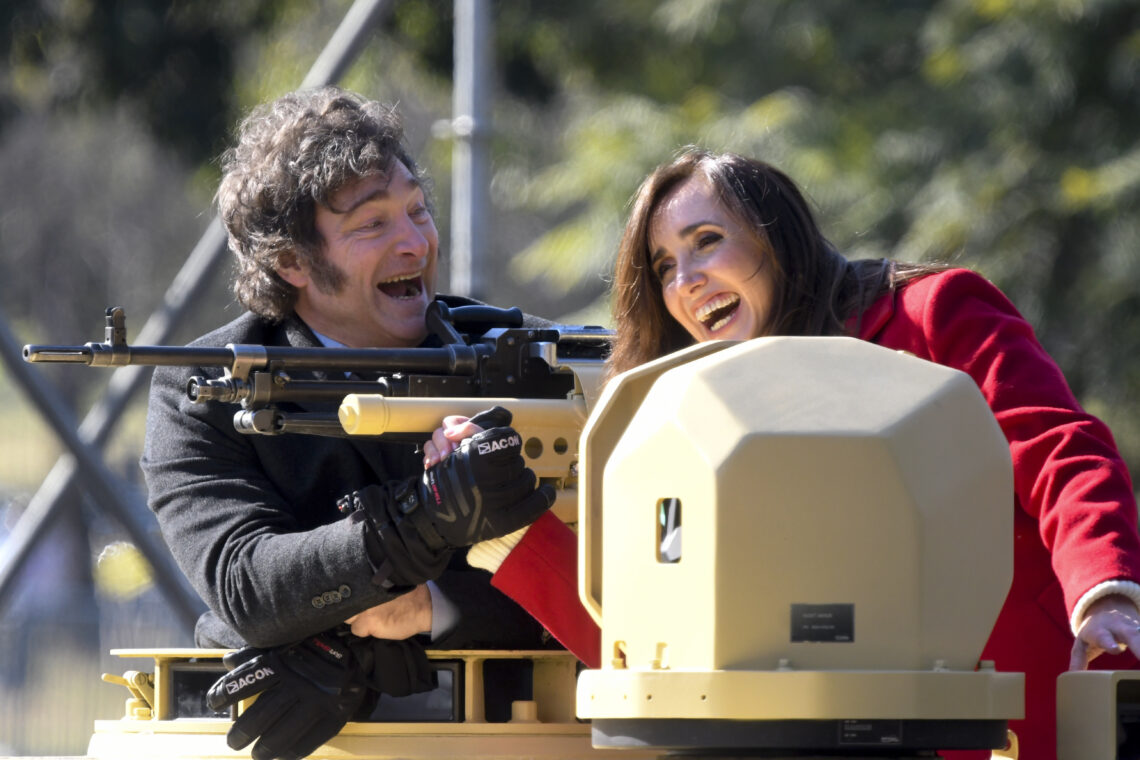Argentinean President Javier Milei is cutting costs across the board, but increasing investment in Argentina’s military forces.
Why is Milei spending more money on Argentina’s defence?
This is the question posed by Sam Meadows in The Spectator. Meadows is a journalist based in South America.
Milei has shut down entire ministries, such as the Ministry of Culture. He has also shut down the Argentinian “thought police”.
Consumption is falling across the board, just as Milei promised in the election campaign. This is of course (as predicted) creating problems for individual Argentines. But in the long term, this is the only way to save Argentina’s economy, says Milei.
There are many indications that Milei’s shock therapy is actually working. Inflation is now under control and has been reduced from 17,000 to 35 per cent.
35 per cent is still too high an inflation rate, but for Argentines the end seems near.
But why is Milei increasing investment in the military forces?
Milei has not only failed to cut military spending, but promised to increase the budget for the armed forces from 0.5 per cent of GDP to 2 per cent over the next decade.
Argentina faces no obvious military threat. While they still believe the Falkland Islands are theirs, there are no signals that they intend to restart that conflict.
In the comments section below the story in The Spectator, one person suggests that the Falklands should actually be a target for Milei. But it’s probably contempt for British politicians that plays the main role in the commentary.
A quick look at the arseholes currently sitting in government offices in the UK and he might fancy a reprise of the Falklands.
Who can doubt for a second that Starmer would give up the Falklands in a heartbeat?
The most obvious practical answer is to combat so-called “internal threats” in the form of criminal gangs, says Meadows. But Argentines still remember the military dictatorship that operated until 1983. They are unlikely to like the military being used against civilians, he believes.
Well, perhaps it depends on who the civilians are. There has been an explosion of violence linked to cocaine traffic, which has particularly affected the city of Rosario.
Milei’s security minister, Patricia Bullrich, has promised a strong response, perhaps modelled on El Salvador, where “cool dictator” Nayib Bukele used the military to round up tens of thousands of young men, who are still imprisoned without trial.
.Bukele is hugely popular with ordinary law-abiding citizens who have had enough of the streets and cities being controlled by gangs. The methods are controversial, especially in the West where only measures that are humane enough not to work are accepted.
Milei may follow in Bukele’s footsteps. But that sounds a bit odd, in a country that is nowhere near experiencing the problems that El Salvador has to live with.
Another explanation could be that Milei, who is a great admirer of Donald Trump, wants to adapt to the same requirements that NATO countries have to fulfil. Perhaps Milei is increasing investments in defence in order to adapt to Trump and, if possible, enter into a military alliance with the US if Trump wins the election?
This could also be a path towards better economic co-operation with the US, which could raise the standard of living of ordinary Argentines. After all, around 20 per cent of Argentines live in extreme poverty.
As one poor pensioner told the BBC:
“We should be having a quiet life at home, sipping mate [the drink], but instead I have to stay here and defend my income. It’s impossible to live this way.
If you asked them what worries them most today, the prestige of the military wouldn’t be high on the list, Meadows concludes.
But while Milei is controversial, he’s no fool. He probably knows what he’s doing. Perhaps the expansion of the defence budget is another piece in his economic rescue plan for Argentina?


